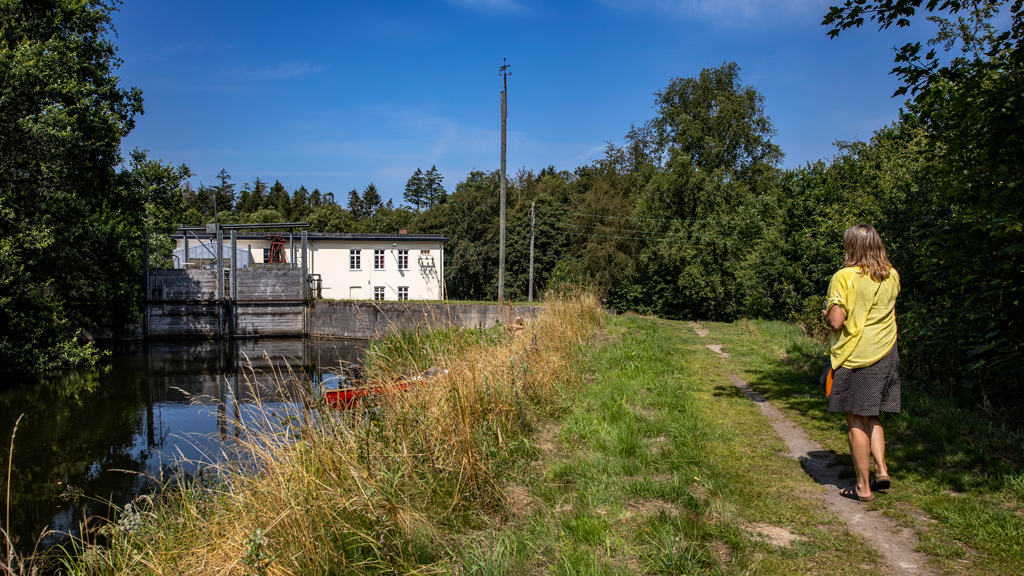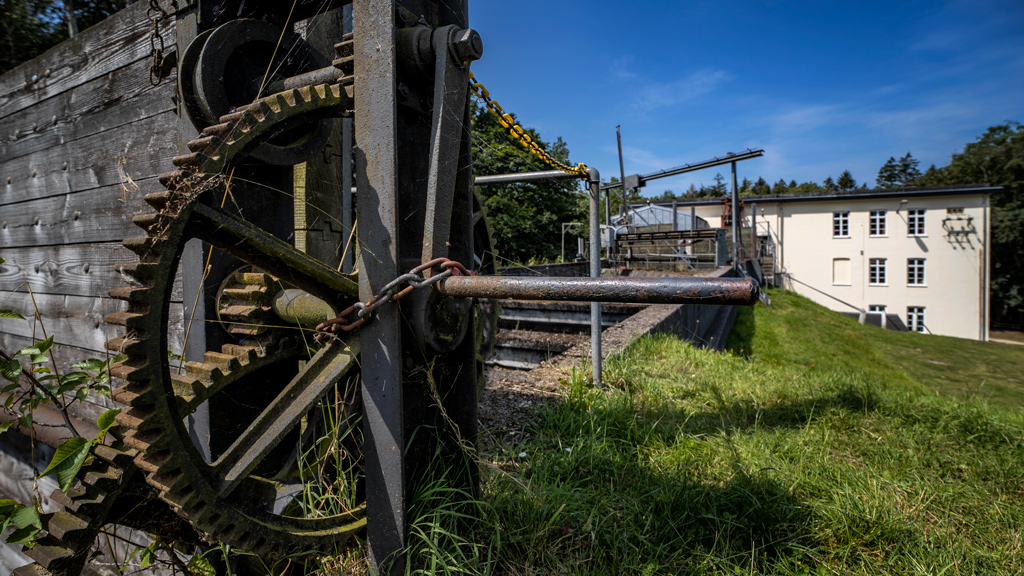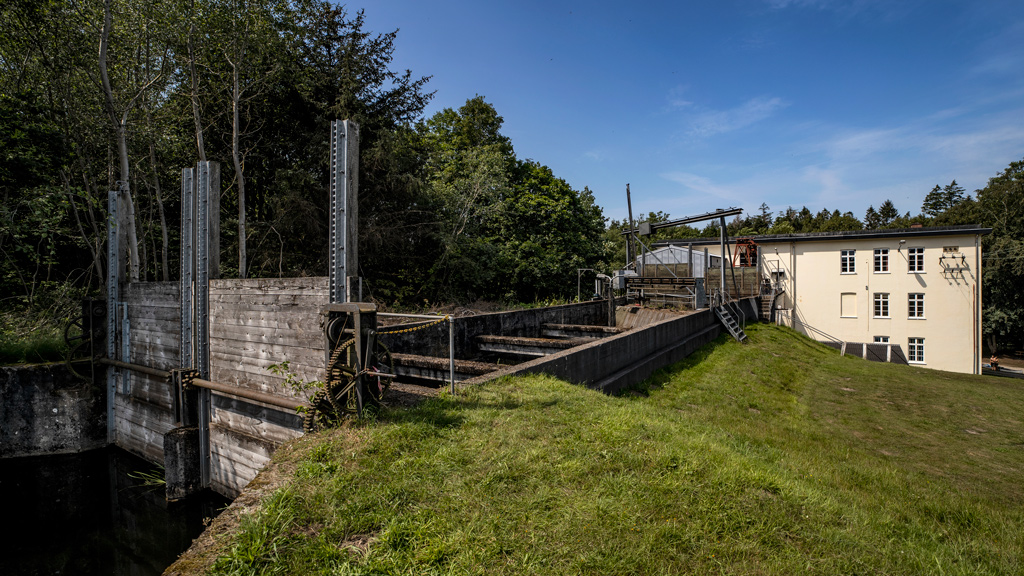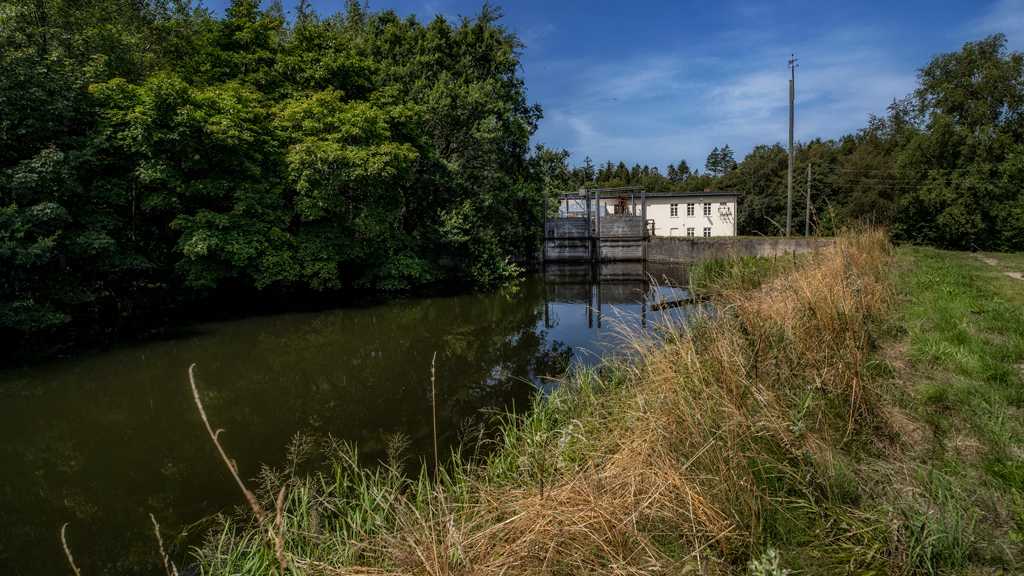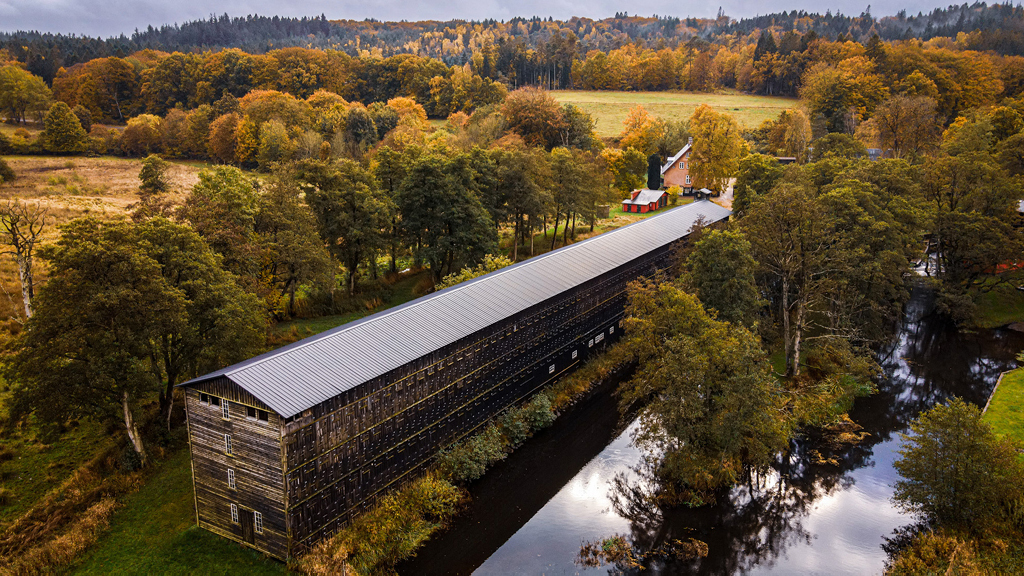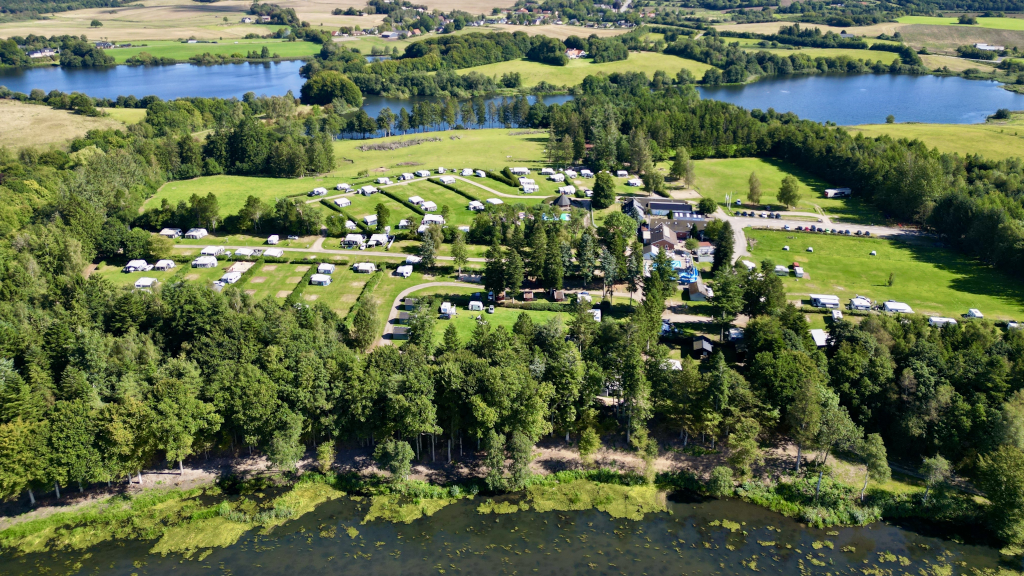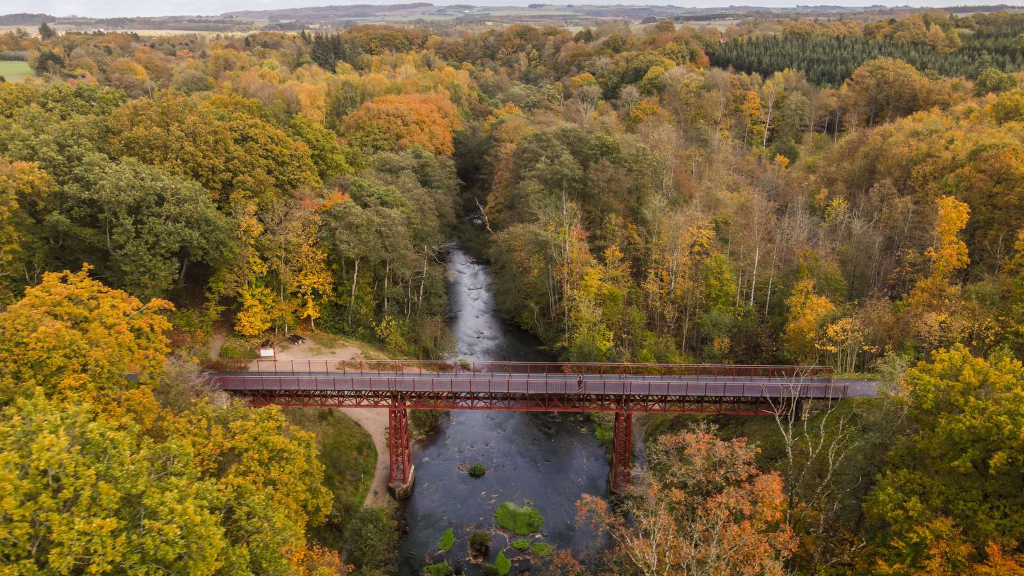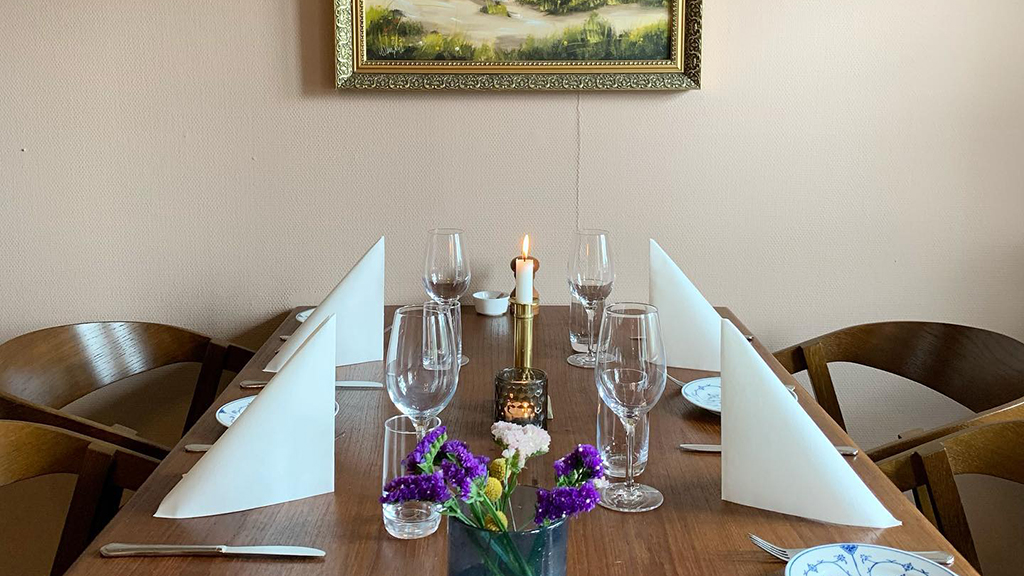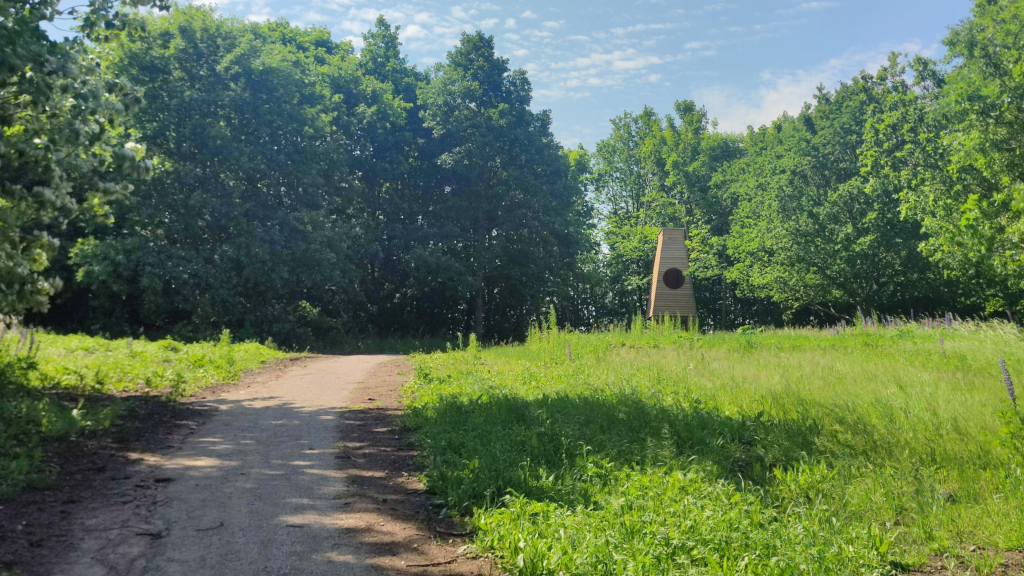Vestbirk Hydroelectric Plant (Vandkraftværk)
Vestbirk Hydropower Plant is the obvious destination for an excursion, when looking for beautiful natural surroundings mixed with historic buildings. The waterpower station is one of the many exciting attractions at the river Gudenåen.
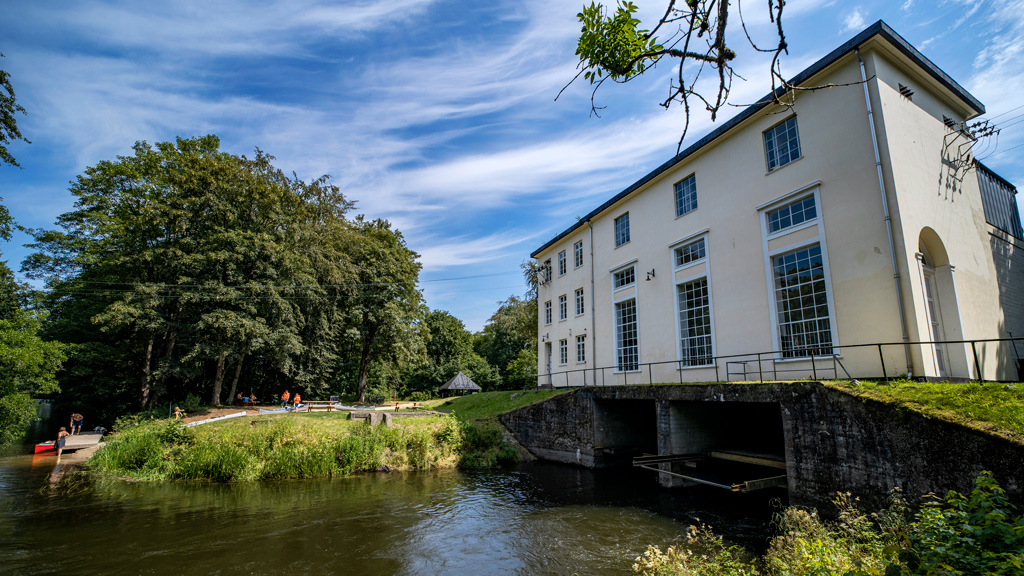
A historic building in the Bakkelandet hills
Vestbirk Hydroelectric Power Station is one of Denmark’s oldest alternating current plants, powered by water. Located on the scenic banks of the Gudenå River, this historic site is a fascinating destination for both hikers and canoeists.
At the site, you can explore an informative display that tells the story of the old mills and the hydroelectric power station. If you are out on a day trip, it is easy to unpack your lunch here – there are picnic tables, a shelter that seats up to 20 people, and a public toilet.
Vestbirk Hydroelectric Power Station is located less than 1 kilometre from one of Denmark’s most iconic nature attractions, The Rediscovered Bridge, and many visitors choose to combine the two experiences.
The story of Vestbirk Hydroelectric Power Station
In the years following the First World War (1914–1918), coal and diesel shortages prompted the search for alternative energy sources to supply electricity to the Danish population. Vestbirk Hydroelectric Power Station is a prime example of this shift. In 1924, an alternating current power plant was constructed here to harness the natural energy of the Gudenå River. The existing power station, which supplied the nearby towns of Vestbirk and Østbirk, faced serious issues with diesel deliveries, forcing locals to rely on oil lamps.
A major engineering project was launched to achieve the right water drop to power the turbines. Over the course of eighteen months, 120 people were employed in excavation and construction. This effort resulted in the creation of three lakes – Bredvad, Naldal, and Vestbirk Lake – and a rerouting of the Gudenå River.
When it was completed, Vestbirk Hydroelectric Power Station produced a quarter of Jutland’s electricity.
In 1979, the power station and surrounding lakes were sold to the Danish Nature Agency, which still leases and operates the site today. The station continues to produce 1.8 million kilowatt-hours of electricity annually.
As part of a future rerouting of the Gudenå River, it is planned that Vestbirk Hydroelectric Power Station will cease production. For now, however, it remains operational.
Well-known among canoeists
Vestbirk Hydroelectric Power Station is a natural part of the canoe route along the Gudenå River between Tørring and Klostermølle. At the station, you need to go ashore and transport your canoe across a gravel road and down a ramp on the other side. Canoes can be moved using the trolleys available on site. This is also a popular spot to take a break and enjoy the picnic benches on the grounds before continuing your journey.
Please note that it is not possible to transport your canoe from land to the water entry point, so the hydroelectric power station is not suitable as a starting or ending point for a canoe trip.
You can rent a canoe from Vestbirk Camping, which is located close to the power station.
Getting to Vestbirk Hydroelectric Power Station by land
If you are arriving by car, you can park at Søbanke, along the roadside of Søvejen. This car park is located where the Gudenå River flows out of Vestbirk Lake. A path runs from here along the river to the power station.
If you are parked at The Rediscovered Bridge, walk 500 metres east along Søvejen until you reach the power station car park.
Please note that the building itself is not open to the public.
Other experiences in the Bakkelandet hills
Vestbirk Hydroelectric Power Station is situated in an area known for its beautiful, forested landscape, dotted with lakes and hills. Here you will find several of Denmark’s highest points and major natural attractions.
Visit this page for inspiration on more experiences in the Bakkelandet hills.
Last updated on September 5, 2025 by Casper Terkelsen
Contact Information
- Email: shl@nst.dk
Facilities
- Picnic table
Type
- Historical architecture
Test-gb
- Myself
- My partner
- Friends
- Children
Comment s’y rendre
Søvejen 68
8752 Østbirk
Dernière mise à jour par ::Destination Kystlandetinfo@kystlandet.com
